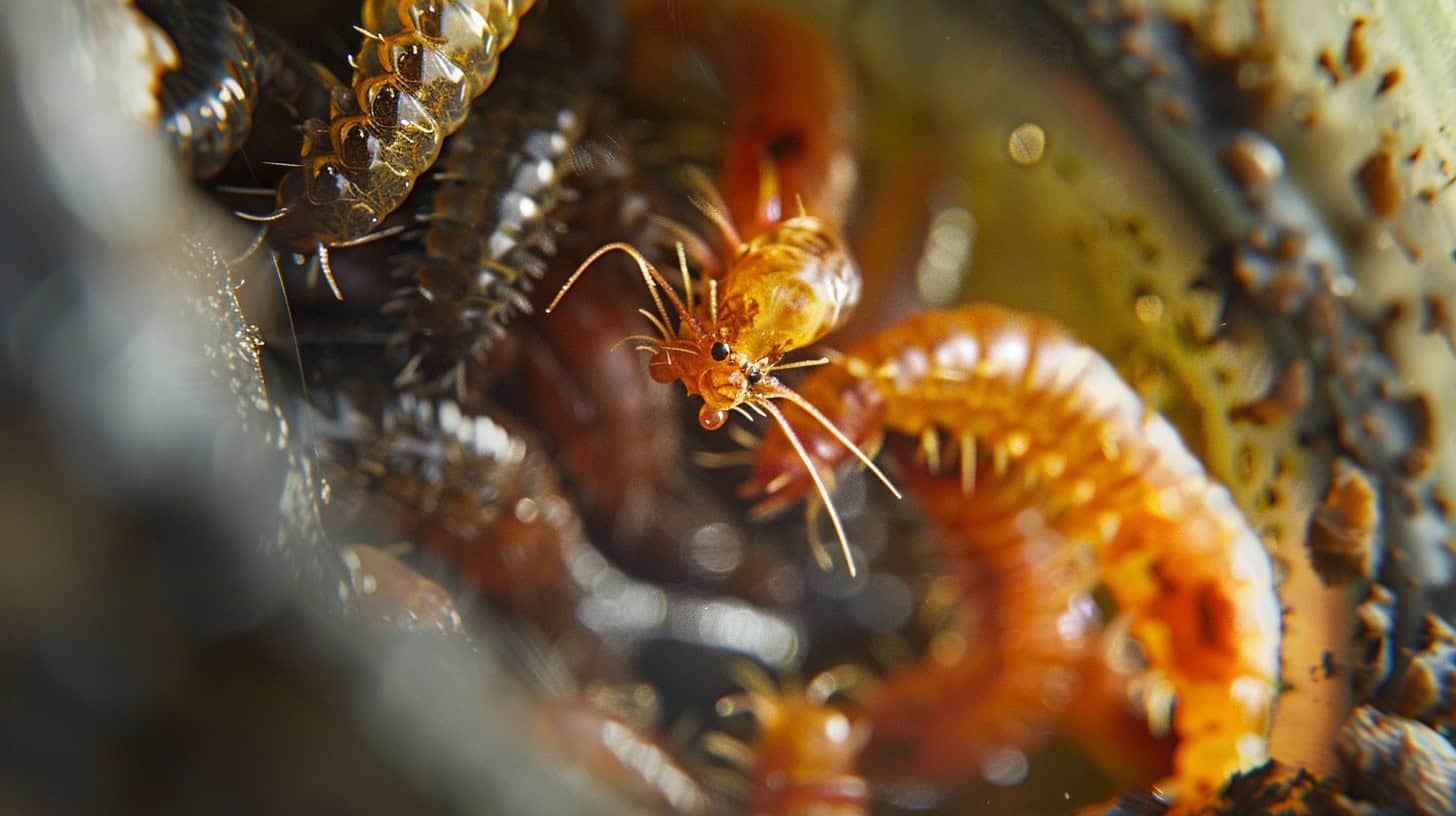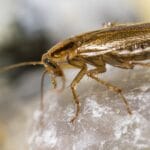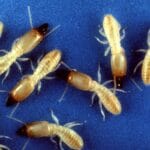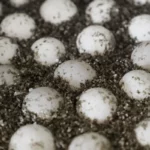Dealing with maggots in your trash can is a nasty problem, but one that’s easily solved with the right approach. This guide provides a comprehensive strategy for eliminating existing maggots and preventing future infestations. From natural remedies to proven elimination methods, we’ll cover everything you need to know to win the war against these unwelcome guests.
Understanding the Enemy: Maggot Origins and Habits
Maggot 101: Life Cycle and Identification
Maggots aren’t just random pests; they’re the larval stage of flies. Understanding their life cycle—from egg to larva (maggot), pupa, and finally adult fly—is key to effective control. Breaking this cycle at any stage disrupts their reproduction and reduces infestations. Common culprits include houseflies, drawn to decaying food, and blowflies, which prefer rotting meat. Identifying the type of fly buzzing around your bin helps pinpoint the source of attraction and tailor your strategy. For instance, tiny fruit flies likely suggest overripe produce lurking in your trash. Discover the resilience of another common household pest and learn how long can a betta fish survive without food.
Why Your Trash Can Is a Maggot Magnet
Your trash can, with its mix of decomposing food scraps and moisture, is essentially a five-star maggot restaurant. Flies are attracted to the odors emitted by rotting organic material, and they lay their eggs in this appealing environment. Moisture accelerates decomposition, intensifying the smell and making the bin even more attractive. So, a dry, clean can is your first line of defense.
Eliminating Maggots: Proven Attack Strategies
Natural Remedies: Environmentally Friendly Warfare
Nature provides effective and safe ways to eliminate maggots. Diatomaceous earth, a powder made from fossilized algae, dehydrates maggots on contact. Vinegar disrupts flies’ sense of smell, hindering their ability to locate your bin. Essential oils like peppermint, cinnamon, clove, and eucalyptus create an aroma barrier that flies find repulsive. A sprinkle of black pepper can further deter them. These natural methods are often gentler on the environment and pets than chemical solutions.
Chemical Solutions: When Nature Needs a Boost
For severe infestations, commercial insecticides designed for flies and maggots, such as Net-Tex Fly & Maggot Killer, can provide a more potent solution. Always follow product instructions carefully and prioritize safety when using these chemicals. Ongoing research suggests that rotating chemical and natural methods can prevent flies from developing resistance.
Quick Kill Methods: Immediate Maggot Elimination
- Boiling Water: Pouring boiling water directly onto maggots is a swift and lethal solution. However, avoid this method with plastic trash cans, as the heat could warp them. Metal trash cans, with their Doberman Pinscher bite strength-like durability, are better suited for this tactic.
- Salt: Table salt dehydrates maggots, effectively disrupting their life cycle. Generously sprinkle salt over the infested area.
- Freezing: Bag up the infested trash and freeze it for several hours. The extreme cold will eliminate the maggots.
Preventing Maggots: Long-Term Defense Strategies
Trash Can Tactics: Fortress Defense
A tight-fitting lid is your trash can’s primary defense against flies. Regularly clean the can with a vinegar and water solution to remove food residue and deter flies. Double-bagging food waste provides an extra layer of protection.
Environmental Control: Eliminating Breeding Grounds
Extend your defense beyond the bin by cleaning up pet waste immediately, removing rotting organic matter from your yard, and ensuring proper drainage to avoid standing water. Flies thrive in warm, moist environments, so positioning your trash can in a cool, shaded area can also help.
Kitchen Strategies: Indoor Defense
Inside your home, store food in airtight containers. Clean up spills promptly to prevent them from becoming fly attractants. Consider using natural repellents like bay leaves or essential oil-soaked cotton balls near your trash can to further deter flies.
Maintaining a Maggot-Free Zone: Ongoing Vigilance
Winning the battle against maggots requires constant vigilance. Regular cleaning, prompt garbage disposal, and proactive prevention are your best weapons. Composting food scraps diverts organic waste from your trash, minimizing attractants and enriching your garden—a double victory! While current knowledge provides effective strategies, ongoing research explores fly behavior and attractants to develop even more effective preventative measures. Some experts believe that integrated pest management, combining various methods, may be the most sustainable approach.
| Method | Effectiveness | Safety | Eco-Friendliness |
|---|---|---|---|
| Diatomaceous Earth | High | High (when used properly) | High |
| Vinegar | Moderate | High | High |
| Essential Oils | Moderate | Moderate (can irritate skin) | High |
| Insecticides | High | Low (handle with care) | Low |
| Trash Can Management | Essential | N/A | High |
| Eliminating Breeding Sites | Essential | N/A | High |
By understanding maggot behavior and implementing these strategies, you can achieve a maggot-free home environment. Remember, a combination of methods is likely the most effective approach, and your efforts will create a cleaner, more sanitary living space.
- Unlocking 2-Letter Words with U: The Definitive Guide - April 4, 2025
- Unlock Words with the Letters THREE: Top Unscramble Tools 2025 - April 4, 2025
- Master Scrabble: X & Z Words for High Scores - April 4, 2025

















2 thoughts on “Maggot-Free Trash Can: A Simple Guide to Prevention and Elimination”
Comments are closed.